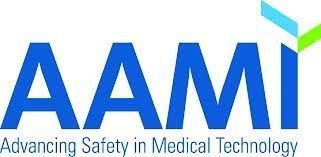
AAMI Delivers Wireless Healthcare Technology Resource with Fall Issue of ‘Horizons’
AAMI has released the fall 2016 issue of its award-winning, peer-reviewed publication, Horizons—with a special focus on wireless technology in healthcare.
Fri Dec 02 2016

AAMI has released the fall 2016 issue of its award-winning, peer-reviewed publication, Horizons—with a special focus on wireless technology in healthcare. The resource provides practical approaches, insights, and advice for professionals to safely and securely manage such technology.
Healthcare is increasingly reliant on wireless technology as medical devices and systems grow more interconnected and mobile. But the freedom that wireless provides also brings news risks and challenges—how do hospitals protect patient data from cyberattacks? How will regulators and industry manage the spectrum on which wireless devices operate? Can different devices—and the diverse people who work with them—speak with one another effectively?
The new edition of Horizons—a publication distributed to AAMI members and subscribers—explores the challenges faced in the rapidly evolving world of wireless technology in healthcare, including wireless coexistence, spectrum management, cybersecurity, testing and maintaining wireless systems, keeping track of hospital assets, and bridging the gap among people, departments, and devices that may not always speak the same language.
“We’re hoping this issue of Horizons will help AAMI members and others in healthcare who are grappling with the challenges posed by wireless technology,” said Sean Loughlin, vice president of communications at AAMI. “With each issue of Horizons, we set out to offer unique insights and practical solutions to some of the more vexing challenges associated with one topic in healthcare technology. This particular edition should prove to be invaluable for healthcare organizations that are trying to figure out how to make wireless technology work safely and effectively.”
The issue features an in-depth wireless “roadmap for success” checklist, developed by members of AAMI’s Wireless Strategy Task Force (WSTF), which healthcare organizations and manufacturers can follow to step-by-step to improve the state of their wireless systems. Tips range from common-sense approaches, such as eliminating legacy devices, to more in-depth advice, such as building a certificate infrastructure or wireless intrusion detection system.
Other articles published in this issue include one that details an experimental method that can be used to evaluate wireless coexistence in Wi-Fi medical devices, another that describes a system to automate the identification of medical devices running on a network, and a case study from Michigan that used a real-time location system to track the location of intravenous pumps.
Members of WSTF—a diverse group of experts in healthcare technology and information systems—contributed much of the content for the issue.
“AAMI organized the Wireless Strategy Task Force because of the growing role that wireless technologies play in modern healthcare,” said Patrick Bernat, director of healthcare technology management at AAMI, and staff liaison to WSTF. “There can be tremendous benefits to such technology, but there are risks to consider, and this group of experts is committed to creating resources and offering guidance that can help key stakeholders navigate that terrain.”
This issue of Horizons also includes a roundtable discussion, moderated by then-AAMI President and CEO Mary Logan, which includes perspectives on the hottest wireless issues from experts at the Federal Communications Commission, Food and Drug Administration, universities, and medical device manufacturers. Horizons is the supplement to AAMI’s journal BI&T, and it is the winner of multiple national honors, including a 2015 Gold Award from the American Society of Healthcare Publication Editors (ASHPE).
The supporting organizations for this edition of Horizons are the American College of Clinical Engineering (ACCE), the Healthcare Technology Foundation (HTF), HIMSS, and the Medical Device Innovation, Safety & Security Consortium (MDISS).
AAMI offers other resources for stakeholders seeking to navigate the wireless terrain, including a standard recognized by the FDA, known as TIR57, which provides medical device manufacturers with guidance on developing a cybersecurity risk management process for their products.
This article was originally published by AAMI.
